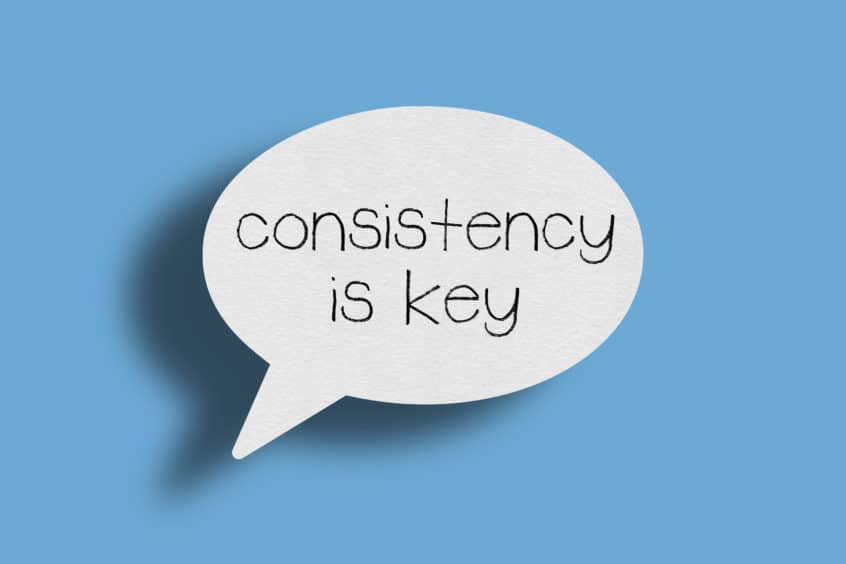Social media has profoundly changed the way businesses approach their brand reputation management. More people use social media channels like Twitter, LinkedIn, and Facebook to interact with brands and express their opinions.
Monitoring your online reputation has become key to maintaining a good brand image. A robust social media presence that caters to these consumers’ needs is essential for building a strong brand and online reputation. This blog will help you discover how to harness social media to transform “likes” into true brand loyalty.
Page Contents
1. Know Your Target Audience
Before defining your brand, it’s essential to know your audience. Understanding who they are, what they like, and what content resonates with them will provide valuable insight for designing your campaign messages. Take the time to research and define your audience’s demographic, interests, and behaviors. This will give you a comprehensive understanding of their needs and how you can provide the best solution. This will drive organic traffic to your platform, ensuring your brand gains a loyal following.
2. Develop A Social Media Strategy

The first step in leveraging social media for a stronger brand reputation is to develop a social media strategy. The strategy should provide a clear direction for communicating with customers and what messages to convey. A social media strategy should establish channels, target audience, content tone, and objectives. To be effective, it must be flexible enough to adjust to new trends quickly. A comprehensive plan should include online reputation management to maintain a positive brand image. Monitoring and responding to social media comments and reviews promptly builds trust and shows commitment to exceptional customer service.
3. Build Meaningful Relationships With Your Audience
Having a large social media following is valuable, but what matters most is the level of engagement and relationships you develop with your audience. Your social media presence should provide an open and honest dialogue platform that fosters discussions about your brand. Responding promptly and empathetically to feedback, queries, and complaints demonstrates how much you value your audience and how committed you are to providing excellent service. Personalizing content like targeting specific identities (age, gender, etc.) can help show that you understand your audience’s needs.
4. Offer Value
Delivering relevant content that provides value to your audience is crucial to fostering brand loyalty. Offering discounts on your product or service encourages customers to get involved with your brand and helps them feel appreciated. Sharing valuable industry news and insights or providing expert advice can also help develop your audience’s trust and willingness to participate in social media interactions related to your brand.
5. Create A Community

To turn your social media following into a devoted community, you must provide interactive opportunities fostering collaboration among like-minded people. Hosting events, contests, and challenges that promote user-generated content that aligns with your brand can help you build strong and supportive communities. Encouraging user-generated content through brand challenges(including hashtags such as #BrandnameChallenge) is a creative way to engage your audience and help you identify social media influencers.
6. Measure Your Metrics
To evaluate the effectiveness of your social media strategy and its impact on your brand reputation, you need to measure your metrics. Focus on metrics closely linked to your goals, but avoid being too fixated on the number of likes, comments, and shares. Use Google Analytics to track website traffic and optimize customer engagement to understand how people interact with your brand. Tracking metrics such as customer satisfaction, brand awareness, and opinion can provide valuable insights into how effective your social media campaign is at building customer loyalty.
7. Transparency and Authenticity
Transparency and authenticity are paramount in fostering brand loyalty, especially in the ever-evolving digital age. Transparency involves being open, honest, and clear about your brand’s values, practices, and challenges. Authenticity, on the other hand, is about being true to your brand’s essence and maintaining integrity in interactions.
In the digital era, consumers have become increasingly informed and critical, often seeking to align with brands that share their values and ethics. Providing a transparent insight into your operations, values, and practices not only fulfills this need but also builds a stronger bond with your audience. This could involve openly sharing your supply chain practices, company culture, or the initiatives taken for social or environmental causes.
Authenticity builds trust. Brands can cultivate authenticity by sharing behind-the-scenes glimpses of the company, and employee stories, and portraying the human side of the brand. This approach creates a connection, making your brand more relatable and approachable. When mistakes occur, acknowledging them gracefully and working proactively to resolve issues showcases a commitment to customer satisfaction and reinforces trust.
8. Consistency Across Platforms

A consistent brand image, messaging, and tone across all platforms are crucial. Consistency in brand elements reinforces your identity and aids in brand recognition. It’s important to tailor your content to suit each platform while maintaining the core brand message, ensuring that the brand’s essence is communicated effectively, regardless of the medium.
Brands need to be active listeners and participants in social media conversations. Monitoring mentions, even when not directly tagged, allows brands to understand consumer sentiment and address concerns promptly. Engaging with the audience by responding to their comments, questions, and concerns not only humanizes the brand but also demonstrates a genuine interest in consumer welfare.
Actively participating in relevant industry conversations establishes your brand as an authority, creating a sense of reliability around your brand. Sharing knowledgeable insights, practical tips, and informed opinions can position your brand as a thought leader in your niche, thereby elevating your brand reputation.
Final Thoughts
Social media can offer an opportunity to harness customer loyalty, reinforce brand reputation, and position a brand in front of a bigger audience. Companies that effectively use social media to build customer relationships offer value, and create community opportunities while continuously monitoring their metrics can unleash the true potential of their brand’s social media presence. Investing in a robust social media strategy underscores that your company is committed to delivering a positive customer experience and delights and retains your audience for years to come.






